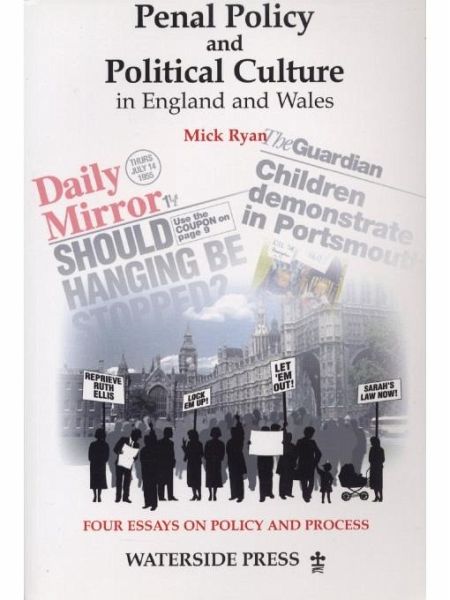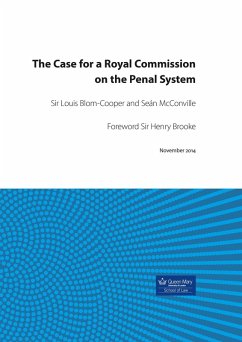
Penal Policy and Political Culture in England and Wales (eBook, PDF)

PAYBACK Punkte
17 °P sammeln!
A refreshing critical perspective on criminal justice: Mick Ryan's analysis and disentangling of the major forces behind postwar criminal justice policy - plus a blunt, modern-day challenge to its 'Hampstead liberals'. For many years making penal policy in England and Wales was in the hands of a small, male metropolitan elite made up of Ministers, liberal lobby groups like the Howard League and the Prison Reform Trust, and senior civil servants. Even Parliament was kept at a respectful distance, and public opinion on important penal questions like capital punishment was taken to be something t...
A refreshing critical perspective on criminal justice: Mick Ryan's analysis and disentangling of the major forces behind postwar criminal justice policy - plus a blunt, modern-day challenge to its 'Hampstead liberals'. For many years making penal policy in England and Wales was in the hands of a small, male metropolitan elite made up of Ministers, liberal lobby groups like the Howard League and the Prison Reform Trust, and senior civil servants. Even Parliament was kept at a respectful distance, and public opinion on important penal questions like capital punishment was taken to be something that had to be managed and circumvented rather than acted upon. Penal Policy and Political Culture in England and Wales looks at challenges to this cosy, elite policy making world, first from below as prisoners groups such as PROP and victims groups like Women Against Rape demanded their say in the 1970s and 1980s, and then later, as the New Right deliberately mobilised public opinion around penal questions as a mechanism to support its harsh social and economic policies in the 1980s and 1990s. Mick Ryan's conclusion is that the penal populism generated by this shift may make the liberal elite feel uncomfortable, but it will not go away. And it is no good blaming it all on opportunistic politicians, though they must take some share of the blame. Rather, the author's argument is that we live in an age where political deference is in rapid retreat, and that the public voice will have an increasing role to play in determining how we respond to a whole range of sensitive social issues, including penal issues, for example, how we deal with paedophiles. His blunt footnote to the liberal elite is that its members need to spend far less of their time 'cosying up' to government Ministers and civil servants and talking amongst themselves at precious, inward looking Whitehall seminars but spend far more time and resources reaching out to engage the public. For Mick Ryan - Professor of Penal Politics in the School of Humanities at the University of Greenwich, London - this is the only way to secure a progressive penal politics, whereas 'backstairs deals' which ignore the public are increasingly difficult to sustain.
Dieser Download kann aus rechtlichen Gründen nur mit Rechnungsadresse in A, B, BG, CY, CZ, D, DK, EW, E, FIN, F, GR, HR, H, IRL, I, LT, L, LR, M, NL, PL, P, R, S, SLO, SK ausgeliefert werden.













